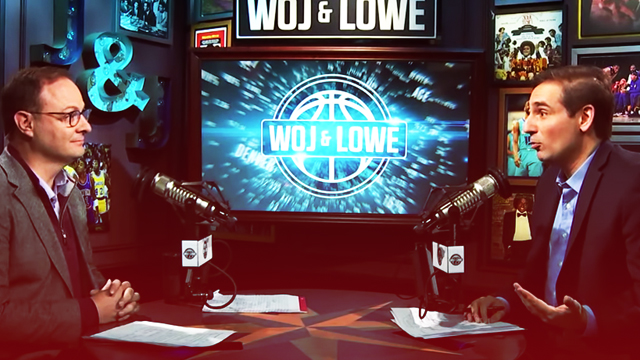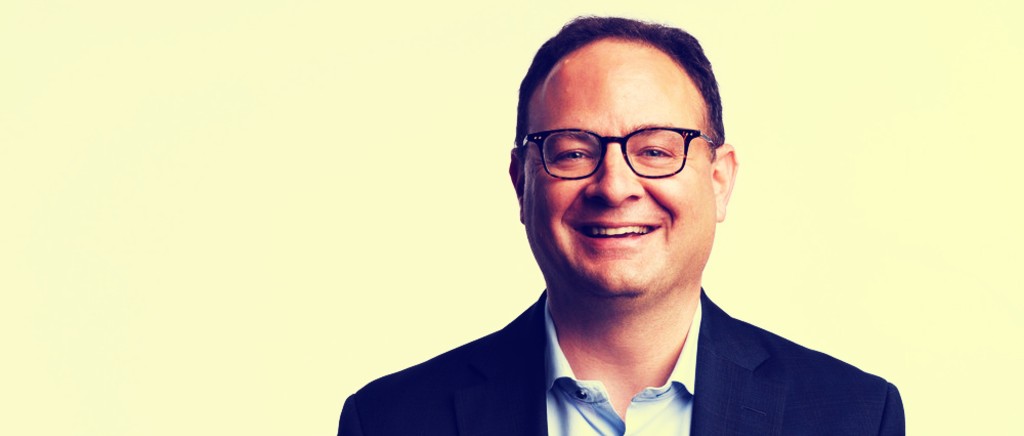When Adrian Wojnarowski was hired by ESPN in the summer of 2017, it was more than just a professional opportunity — it was a return home. Few know Bristol for anything other than housing the Worldwide Leader, but for Wojnarowski, better known among NBA fans simply as Woj, it’s where he grew up and spent countless hours at the local Boys and Girls Club while his mother and father worked.
Spending time at the Boys and Girls Club was formative for a young Woj. He remembers there being hardly more than a big asphalt lot outside the club, but it was a place where he’d skid his knees rough-housing with older kids, compete in pickup hoops, and learned to think on his feet.
“When I was a young person it was different, Bristol has built a big, beautiful state of the art facility since I’ve grown up,” Wojnarowski told Dime. “But the club when I was a kid, it was not big by club standards, but it had everything we needed.”
With Boys and Girls Clubs shuttered around the country due to CDC guidelines on large indoor gatherings, Woj decided to up his involvement with the organization this spring. He had previously hosted fundraisers with the likes of Connecticut men’s basketball coach Dan Hurley, as well as speaking events here and there, but Woj wanted to give kids across the country access to the athletes and media personalities he covers and works with on a daily basis.
The Bristol Club connected Woj with the national office, at which point ESPN’s Citizenship Group got involved. Soon it turned into the #oneteam Speaker Series, hosted live by Woj each week and posted to the ESPN YouTube page. The series has featured everyone from Donovan Mitchell, who also grew up in Connecticut, to Maria Taylor, a multi-sport college athlete at Georgia turned ESPN star.
“I thought that by bringing in some athletes and doing some Q&As on a regional level and posting it, getting the brand name of the B&G Club out there and reminding people that they’re still serving their communities even though physically, the doors might be shut,” Wojnarowski said.
Although he admits children, particularly those in worse socioeconomic circumstances who are supported by the Boys and Girls Club, are going through an unfathomable amount of strife, he hopes seeing and hearing from athletes who went through similar challenges can be helpful. For instance, Mitchell, an alumni of the Greenwich Club, answered a question from a viewer who wanted to know how to get better at basketball while living at an apartment that doesn’t have a hoop.
Though local stay-at-home orders and travel restrictions forced the #oneteam series online, Wojnarowski says it’s been eye-opening just how big the reach is for virtual events, a lesson that can extend past the coronavirus crisis.
“People have done meetings with class where you don’t have to get on a plane, but I think (this has) humanized people in a lot of ways,” Wojnarowski said. “One thing I was conscientious of is the Boys and Girls Club was a respite in (viewers’) lives. However long they might spend there, that was lost in their lives, and many of them are in dangerous home situations.”
Discussing these kids in underserved neighborhoods, especially during a week in which protests and civil unrest have overtaken news chyrons and city streets across the nation, our conversation pivoted back to police brutality and how Black communities are speaking out. Wojnarowski traced his perspective back to the Boys and Girls Club, saying his time there as a kid was “a great lesson in being around a lot of different people from diverse backgrounds and understanding we had a lot in common.”

Still, conversations the past couple of weeks with NBA coaches, who recently formed a committee on racial injustice, and players, who have often led the charge of public protest in the mainstream, have forced Wojnarowski to realize that as a reporter, he can sometimes rest on the laurels of relationships with Black sources, rather than asking uncomfortable questions directly.
“I’ve tried to be mindful and had conversations with African American men and women that I’ve covered and gotten to know, and part of your job as a reporter is the ability to tell their story,” Wojnarowski said. “Even with all of that, I’m not sure that I’ve always done … these moments in time remind you that sometimes we always assume things about other people’s lives and what their challenges are and how people feel about what they’re up against every day.
“We’re not always as mindful of it as we need to be, and this is an opportunity to address that, and continue to do it,” he continued. “It’s a reminder to always dig deeper with those around you and those you don’t know very well.”
Asked what the temperature is within the NBA when it comes to bringing basketball back at a time when many might argue there are more important issues to confront, Wojnarowski said he believes the majority of NBA stakeholders believe their voice will be even stronger when games are going on. Between modeling safe behavior with regard to public health recommendations and speaking out against wrongful treatment of Black Americans, that’s probably true, even if some will disagree.
Though he’s still been at the forefront of NBA news during a crazy year for this country, Wojnarowski certainly doesn’t have all the answers. He’s been lending his platform to voices that he hopes will inspire younger generations with the #oneteam series, and hosting thoughtful conversations about the state of affairs in America on his ESPN podcast. Perhaps virtual events aren’t the only thing that should carry on past this time. Staying honest about injustice and corruption sounds like a pretty good takeaway from 2020, too.
“Unless you ask the question, you don’t know the answer,” Wojnarowski said. “And we have to be asking those questions.”







